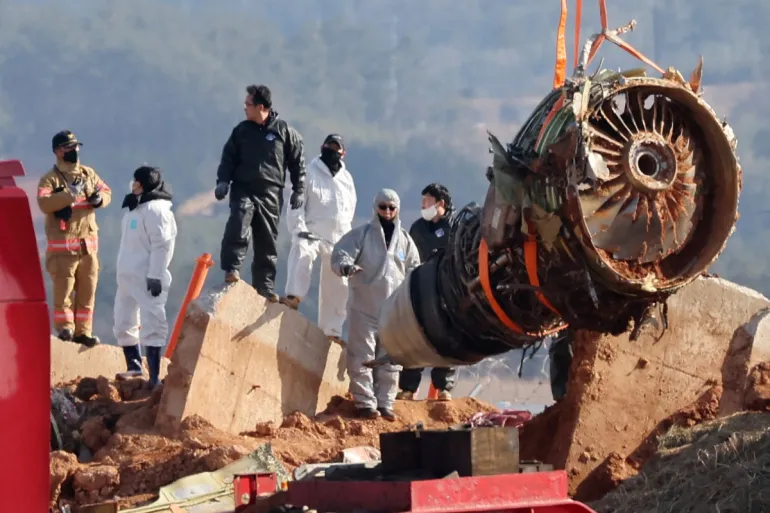South Korea has announced an extension of inspections for Boeing 737-800 aircraft in the wake of ongoing investigations following a recent incident involving Jeju Air. This decision comes as authorities intensify their focus on ensuring the safety and operational reliability of the widely-used aircraft model.
The move to extend inspections was prompted by the partial recovery of wreckage from a Jeju Air Boeing 737-800, which suffered a significant mishap earlier this month. The wreckage was successfully lifted this week, allowing investigators to begin a detailed analysis of the damage. Early indications suggest that mechanical failure may have played a role, though comprehensive assessments are still underway.
South Korea’s Ministry of Land, Infrastructure, and Transport emphasized that the inspections aim to identify and rectify any potential safety risks across the fleet of Boeing 737-800s operating within the country. Carriers using this aircraft, including Jeju Air and other domestic airlines, have been directed to prioritize thorough technical checks and maintenance protocols.
The Boeing 737-800 is a workhorse for many airlines globally, known for its reliability and efficiency. However, it has occasionally been the subject of scrutiny following isolated incidents. South Korea’s proactive approach underscores its commitment to aviation safety and public confidence in air travel.
Jeju Air, South Korea’s largest low-cost carrier, has expressed full cooperation with the authorities and pledged to enhance safety measures in line with the findings from the ongoing investigation. The airline also reassured passengers that operations remain unaffected, with alternative measures in place to minimize disruption to travel schedules.
The recovery of the Jeju Air wreckage marks a critical step in piecing together the sequence of events leading up to the incident. Experts from South Korea’s Aviation and Railway Accident Investigation Board (ARAIB) are working closely with international aviation safety bodies and Boeing representatives to determine the root cause.
Meanwhile, passengers booked on flights operated by Boeing 737-800 aircraft are being informed about additional safety measures. Airlines have increased communication efforts to reassure travelers that the extended inspections are precautionary and aimed at maintaining the highest safety standards.
As the investigation progresses, South Korea’s aviation sector remains vigilant, setting an example of how thorough inspections and transparent procedures can strengthen trust in air travel. The findings of the ongoing investigation will likely shape future safety protocols, not just for South Korea but for the global aviation industry.




















